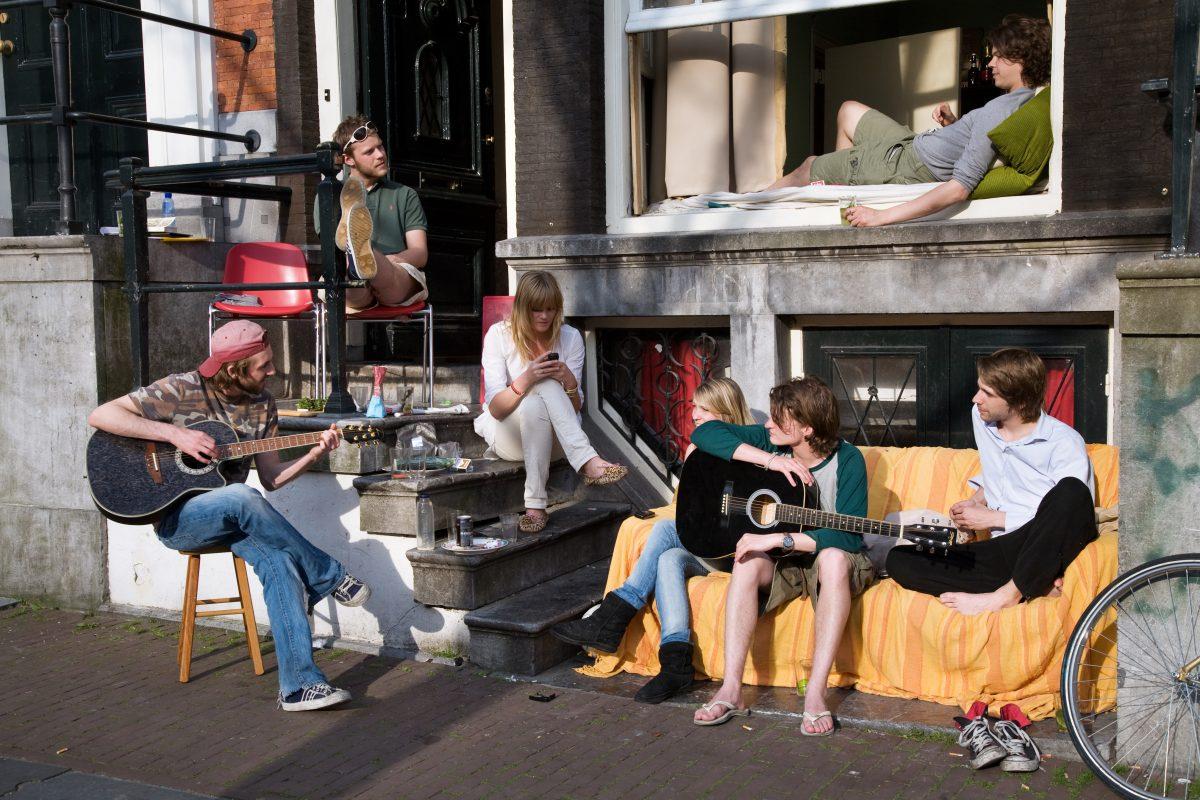Americans have European Protestants to thank for our nativity scenes during the Christmas holiday period, according to Ilana E. Strauss in her article for The Atlantic, “The Millennial Housing Trend is a Repeat of of the Middle Ages”. Apparently, the idea of Jesus as a member of a nuclear family unit instead of a lone preacher was religious propaganda to promote the societal conception of a household consisting of only a father, a mother and their children. Today, millennials, at least according to the media, seem to be upending that societal norm, and are living with friends, neighbors, relatives and strangers, instead of in insular family units. While many of us consider our future housing situations, perhaps we don’t need to transition from dorm life; rather, living with friends provides more benefits than living as a single person and rings true to the character of millennials.
Young people, both in college and post college, have been living communally in shared spaces rather than alone. Often, they have a shared kitchen, bathroom and common area. They split rent, utilities, groceries and other bills. The more roommates, the better: each has to pay less money. It’s almost a form of economic game theory—the more people sign up for the living arrangement, the lower the costs are overall.
Certainly, there are benefits to communal living. When you grow up in a single family household that shares chores and groceries, you can miss that familiar feeling when you strike out on your own. There is also more motivation than just missing close family. Human beings had been living in large households containing more than immediate family for thousands of years, until the concept of the nuclear family arrived by the 1500s with the Protestant Reformation. In essence, we should be “raised by a whole village,” rather than living an isolated lifestyle of a small family. Socially, we’ve been conditioned either to stick with nuclear family or partners or to live on our own.
Today, millennials are changing the face of household living by seeking out roommates from friends, extended family and even strangers. “Instead of limiting their households to children, parents, and grandparents, plenty of people are going a step further, making homes with friends and even strangers. Cohousing, in which a large community lives together and shares household duties, is gaining popularity,” writes Strauss in The Atlantic. A community and support network can come in handy for the young person stepping out into the real world. Living with roommates is like living in a big family, by choice rather than by blood.
One drawback of cohousing, or communal living, is a lack of privacy. You grow used to other people being around all the time, regardless of whether you want them there at that moment or not. You also lose a sense of ownership of your space as you must learn to compromise over the shared spaces with your roommates or family. Cooperation is forced among people who have not grown up together and friction may occur among people who live a different lifestyle from that which you are used to. Resources must be divided up between people and routines must be set for a large group of people. In order to make cohousing liveable, people are expected to take turns cooking for everybody, so roommates must agree on meals. Chores must be rotated and people often differ in their methods of doing chores. Communal living is a lovely idea, but can be challenging in practice.
Moreover, the articles claiming that millennials prefer shared housing may not even be accurate. The media attempts to dissect our habits, interests and flaws in a never ending series of “kids these days” articles. The idea that we have a preference for communal housing may just be another of a long list of unfounded assumptions impressed upon us.
Still, saving time, money and energy by splitting the chores, bills and space can be worth it. I have a few friends who live with multiple roommates in shared homes, and when I visit, I admire the cohesion they have as a unit that eats together, plans household activities together and checks in with each other. When I graduate from Wellesley, you might find me in a shared building with friends, acquaintances and possibly strangers. I could sure use the help with cooking. I would definitely rather live with a group of people than alone.




